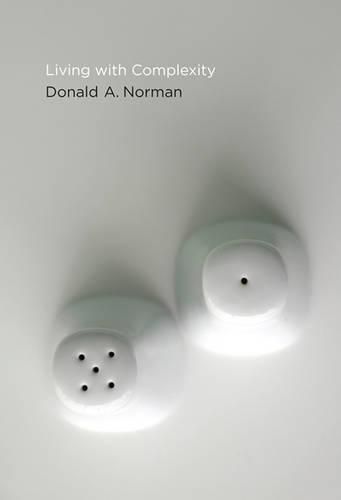Readings Newsletter
Become a Readings Member to make your shopping experience even easier.
Sign in or sign up for free!
You’re not far away from qualifying for FREE standard shipping within Australia
You’ve qualified for FREE standard shipping within Australia
The cart is loading…






Why we don’t really want simplicity, and how we can learn to live with complexity.If only today’s technology were simpler! It’s the universal lament, but it’s wrong. In this provocative and informative book, Don Norman writes that the complexity of our technology must mirror the complexity and richness of our lives. It’s not complexity that’s the problem, it’s bad design. Bad design complicates things unnecessarily and confuses us. Good design can tame complexity. Norman gives us a crash course in the virtues of complexity. Designers have to produce things that tame complexity. But we too have to do our part- we have to take the time to learn the structure and practice the skills. This is how we mastered reading and writing, driving a car, and playing sports, and this is how we can master our complex tools.
Complexity is good. Simplicity is misleading. The good life is complex, rich, and rewarding-but only if it is understandable, sensible, and meaningful.
$9.00 standard shipping within Australia
FREE standard shipping within Australia for orders over $100.00
Express & International shipping calculated at checkout
Why we don’t really want simplicity, and how we can learn to live with complexity.If only today’s technology were simpler! It’s the universal lament, but it’s wrong. In this provocative and informative book, Don Norman writes that the complexity of our technology must mirror the complexity and richness of our lives. It’s not complexity that’s the problem, it’s bad design. Bad design complicates things unnecessarily and confuses us. Good design can tame complexity. Norman gives us a crash course in the virtues of complexity. Designers have to produce things that tame complexity. But we too have to do our part- we have to take the time to learn the structure and practice the skills. This is how we mastered reading and writing, driving a car, and playing sports, and this is how we can master our complex tools.
Complexity is good. Simplicity is misleading. The good life is complex, rich, and rewarding-but only if it is understandable, sensible, and meaningful.